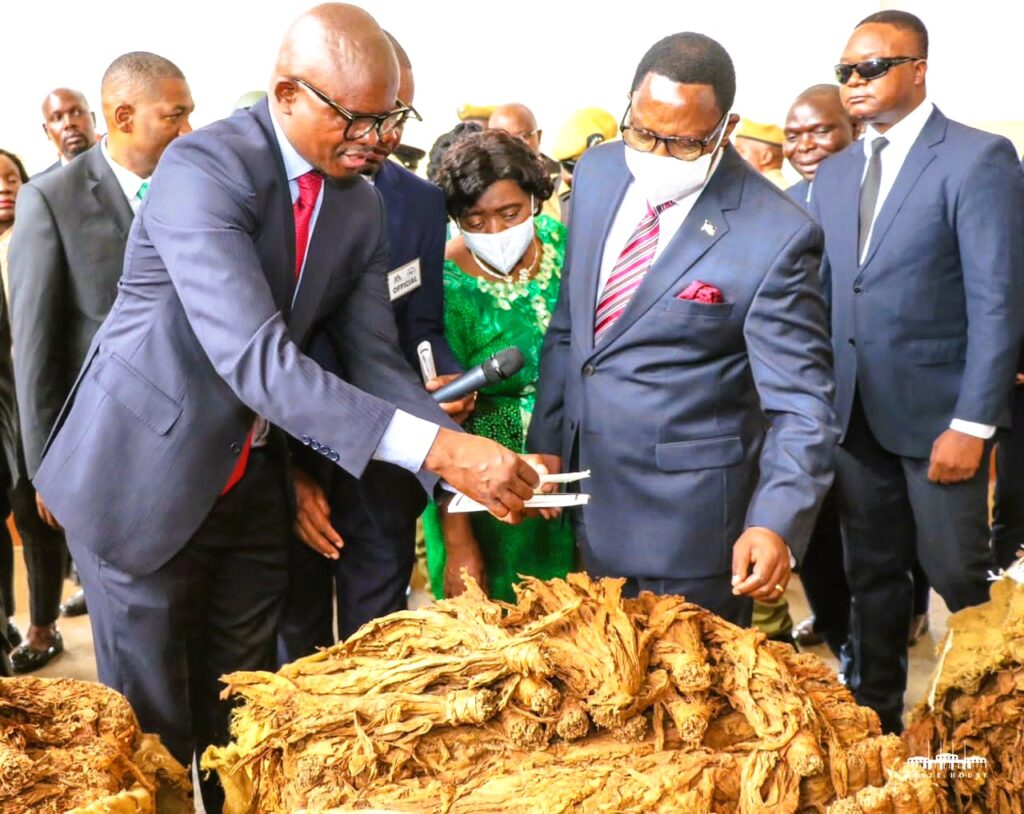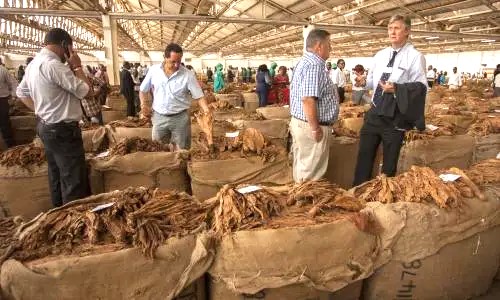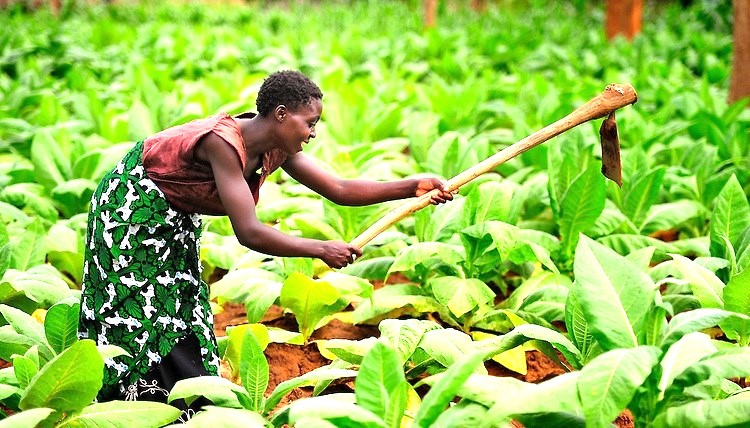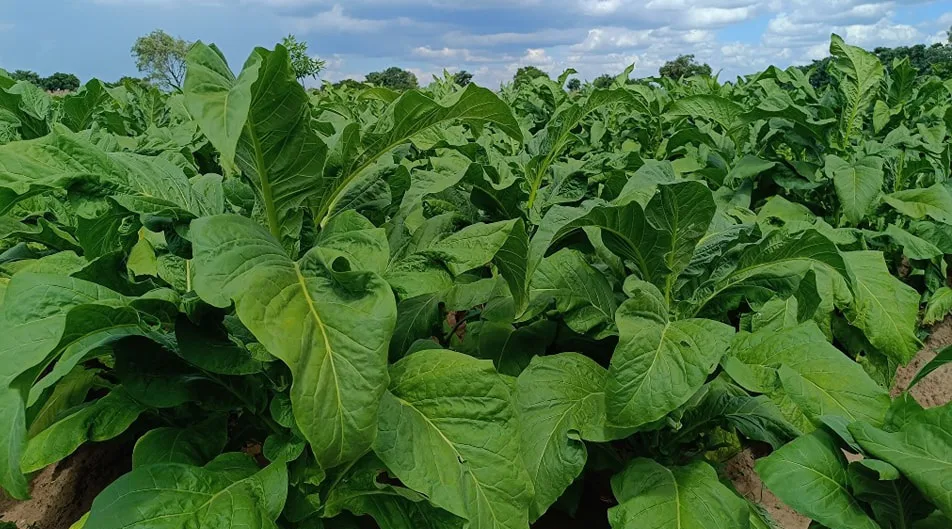
Struggling Malawi economy is seeing a silver lining from the tobacco industry, its biggest foreign exchange earner, despite the erratic rains, which has rocked the Southeast Sub-Saharan nation as the leaf sales are surging this ‘market season.’
In just half-a-month, the country has seen a noteworthy outpouring evolution in income generation in tobacco leaf sales with cashing in a staggering $37 million, approximately K64.1 billion in returns from 14 million kilograms of tobacco, sold thus far.
This is a remarkable progress to a country with a fiscal outlook that remains highly indeterminately uncertain and saddled with still-high inflation, albeit declining, and exchange-rate instability following a large currency devaluation of 44% in late 2023.
However, things are looking economically hopeful as this figure is duple the earnings from the same period in the last tobacco-selling season, when 8.1 million kilograms of tobacco were sold, valued at $16 million.

The Tobacco Commission, a state-owned organisation mandated to regulate the production and marketing of tobacco in Malawi, says the tobacco-selling season, which was instigated on April 15, is currently in its third week of stable action with no signs of slowing down on sales’ trend.
Telephorus Chigwenembe, Tobacco Commission publicist said: “The trend is expected to continue going upward. We have started on a high footing.”
“We believe it will continue to get better, and better,” he added.
Last year, Malawi’s sales of tobacco, increased to roughly $282 million, up from $182 million a year earlier in 2023 and average prices also increased from $2.14/kg to $2.35/kg.
Dwindling tobacco revenues in recent years have contributed to acute dollar shortages that have resulted in a lack of imported fuel, fertiliser, and medicines in the donor-dependent land-locked southern African country.
Malawi has turned to the International Monetary Fund for financial support and launched debt restructuring talks with creditors.

This year’s significant growth in tobacco sales is a welcome boost to Malawi’s economy, which heavily relies on agriculture, and in particular, tobacco to earn revenue but in recent years has been facing challenges.
Tobacco is one of Malawi’s main commercial crops, and its financial performance on the market has a momentous effect and influence on the country’s economy.
The industry provides employment opportunities for thousands of farmers and workers, and its earnings contribute substantially to the country’s foreign exchange reserves.
Malawi’s current snowballing growth in tobacco sales is anticipated to have a positive impact on the country’s economy, with augmented and enlarged earnings that are expected to make gain for farmers as well as processors, and traders.
Great tobacco sales, if the trend continues, will lead to the country’s amplified financial bustle, job creation, and better-quality livelihoods for majority of Malawians.

Tobacco production in Malawi is one of the nation’s largest biggest income earner and the country is one of Africa’s largest tobacco leaf producers and at its peak in 2015, the former British colony produced 22.6% of all of Africa’s output of tobacco leaf.
In 2005 Malawi was the twelfth-largest producer of tobacco leaves and the 7th largest global supporter of tobacco leaves and as of 2010, the country was the world’s leading producer of Burley leaf tobacco.
With the decline of tobacco farms in the West, interest in Malawi’s low-grade, high-nicotine tobacco has increased and such the Malawian tobacco is found in blends of nearly every cigarette smoked in industrialized nation.
Malawi is the world’s most tobacco dependent economy but in recent years the leaf’s annual production levels and prices have been falling fell steadily largely due to the weakening world demand of smoking coupled with the of declining tobacco quality due to climate change.

Malawi began exporting tobacco in 1893, just two years after the British set up a colonial government in the landlocked territory known then as Nyasaland and it is one of the world’s largest producers of burley tobacco.
Government ministers have called tobacco a “strategic crop” for Malawi and defended the country’s continuing investment in its production. However, earnings from tobacco leaf export have declined sharply over recent years.
Although tobacco seems to be Malawi’s economic life-line, tobacco growing has contributed to rapid deforestation of land — approximately 26% of the country’s deforestation is attributed to tobacco production, which is one of the highest rates in the world.
Internationally recognised Sustainable Development Goals (SDGs), however, advocates reducing a country’s economic dependence on tobacco so as to reduce the number of families trapped in cycles of poverty and thus improving food security by supporting alternative sustainable livelihoods for tobacco growers.
“The trend is expected to continue going upward.”
Telephorus Chigwenembe
Tobacco Commission Spokesperson



